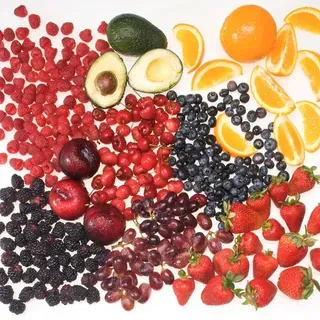Directory of Certified Deciduous Fruit and Nut Crop Nurseries in Florida
The sustainability of fruit and nut crops as a farm enterprise is dependent on the proper selection of a species and cultivar in relation to the specific region where the crops are to be grown (https://edis.ifas.ufl.edu/mg367). Florida represents several climatic regions. The proper selection of species and cultivars is probably the most important decision that determines the success or failure of a farm enterprise.
The University of Florida has released many fruit crops, including peaches/nectarines (http://www.hos.ufl.edu/extension/stonefruit/stone-fruit-varieties), plums (https://edis.ifas.ufl.edu/hs250), rabbiteye and southern highbush blueberries (https://edis.ifas.ufl.edu/ac031), muscadine grapes (https://edis.ifas.ufl.edu/hs100 and https://edis.ifas.ufl.edu/hs401), bunch grapes (https://edis.ifas.ufl.edu/mg105), an apple (https://edis.ifas.ufl.edu/hs764), and a pear. All of these releases have a low chilling requirement, which is critical to all growing regions of Florida. Many of these UF specialty crop cultivars ripen in early spring during a market window with little or no worldwide competition. Site selection is extremely important for successful production of most fruit and nut crops in Florida. Potential orchard sites should have soil that is well drained and slightly sloped for cold air drainage.
A number of cultivars have been developed for North, Central, and South Florida, and a continued emphasis for the breeding program is to increase the diversity of germplasm for the entire state. However, small and large producers seldom are aware of, nor can they find, these Florida-adapted cultivars of fruit and nut crops from local nurseries. Many of the UF cultivars are patented through the Florida Foundation Seed Producers, Inc. (FFSP, http://ffsp.net), and bud wood is made available to those nurseries that purchase licenses. It is important to buy patented varieties from licensed nurseries. FFSP is a nonprofit corporation and direct support organization of the University of Florida. FFSP works closely with the Florida Agricultural Experiment Station (FAES), an agricultural and natural resources research program of the University of Florida's Institute of Food and Agricultural Sciences (UF/IFAS).
According to a 2007 agricultural census, 91% of all farms in the United States are classified as small farms (gross cash farm income < $250,000). Likewise, more than 90% of all Florida farms are small farms. Florida is unique, however, in that it is one of the few states that showed an increase in the total number of farms in the 2007 census. This 8% increase in the total number of farms was essentially all in the small farm category. Small farmers in Florida have great opportunities because of the large urban centers, the mild climate, and abundant natural resources available. Most small farmers choose to directly market their products to the consumer to maximize profits. A diversity of fresh products to offer, such as fruits, nuts, and vegetables, generally is preferred at most direct-market venues. Some direct marketing strategies include farmer's markets, on-farm sales, roadside stands, subscription sales, community-supported agriculture (CSA), U-pick, and sales directly to restaurants or institutions, such as schools (https://edis.ifas.ufl.edu/fy597).
Florida is poised to increase the number, sustainability, and profitability of small farms with increased access to new and improved cultivars, further exploitation of market windows, the development of new information and technologies on culture, and management and pest control, which includes insect monitoring, the use of trap cropping, safer targeted pesticides, and biological control. UF/IFAS is conducting research throughout the state to identify the key limiting factors to sustainability and profitability of low-chill fruit and nut crops by evaluating new cultivars, developing new production and management strategies, and using traditional and novel marketing dissemination methods.
Florida's subtropical climate is suitable for the culture of numerous fruit and nut trees. Certain species and cultivars can be grown successfully in Florida with a minimum of inputs (well adapted to Florida) or only with the investment of substantial inputs (marginally adapted), while others cannot be grown at all (non-adapted).
Agricultural sustainability is largely a function of identifying and selecting adapted species/cultivars for a given geographic region. Proper crop selection results in minimal inputs, such as pesticides, irrigation, fertilizer, and labor. Sustainable crops are those with minimal inputs and consistent outputs, including yield, fruit quality, and minimal environmental impact. Crops that meet these criteria are candidates for organic practices, small farms with limited resources, and/or a desire to avoid extensive inputs. However, there is not always a good correlation between profitability and sustainability. Other crops may be less sustainable (southern highbush blueberry) but still be attractive because of high potential profitability. Cultivar selection is the orchard's foundation. Appropriate cultivar selection minimizes inputs and maximizes profits.
This publication was developed to assist farmers in locating recommended cultivars of fruit and nut crops from Florida nurseries. The nurseries listed in Table 1 offer fruit and nut trees and are listed as certified nurseries with the Florida Department of Agriculture and Consumer Services (http://www.freshfromflorida.com/pi/plantinsp/nursery_directory/nur_directory.html). The nursery certification process is regulated by the Florida Department of Agriculture and Consumer Services (http://www.freshfromflorida.com/pi/plantinsp/docs/brief_summary.pdf). Many nurseries listed in Table 1 only offer a few cultivars, while others offer several cultivars of many fruit or nut crops. Table 2 lists fruit and nut cultivars that University of Florida Extension specialists currently recommend or suggest on a trial basis. Maintaining an up-to-date list of cultivar inventory at each nursery is very challenging, so contact the nurseries directly to determine current inventory, or view their websites if available.



